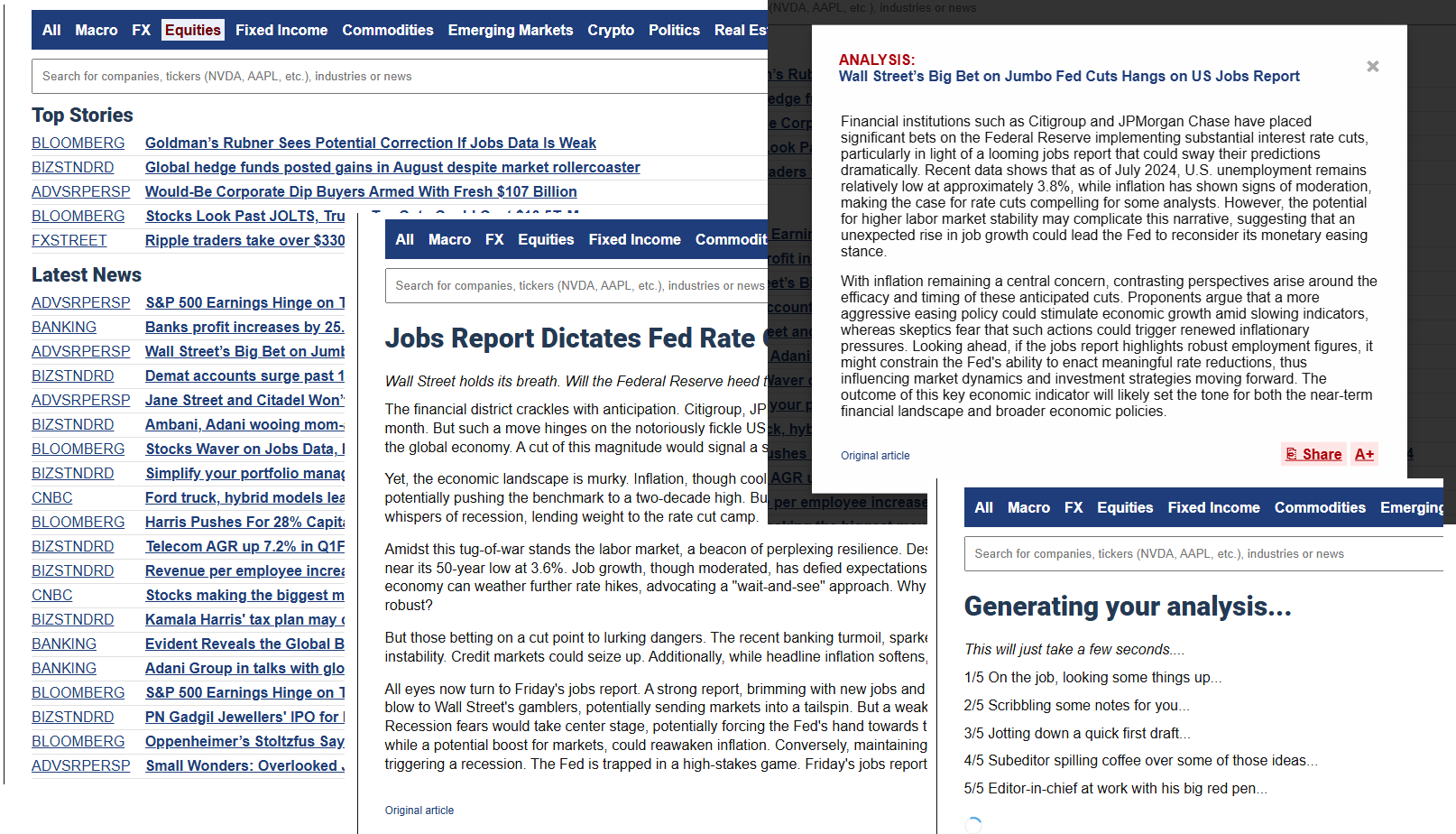Markets React to Global Economic and Political Shifts
The current global financial landscape is experiencing significant volatility as various events and developments converge to impact market dynamics across multiple sectors. In the cryptocurrency arena, particular attention has been drawn to Raydium, which has exhibited an extraordinary 83% surge in the past month. This spike underscores the inherent volatility and speculative nature of digital assets, tempting some investors seeking a hedge against traditional financial systems. However, experts remain divided; while some caution that Raydium's current overbought status might signal an impending correction, others suggest that favorable funding rates may indicate potential for further gains. This divergence in opinions highlights the complex interplay between technical indicators and investor sentiment, illustrating the unpredictable nature of the cryptocurrency markets.
Simultaneously, the automotive sector has found itself on a thrilling high, particularly within the realm of Formula One racing. Ferrari's Carlos Sainz recently clinched victory in Mexico, a win that came amid regulatory penalties affecting Max Verstappen, thereby intensifying the championship's competitive landscape as the season approaches its conclusion. The implications of these sporting outcomes stretch far beyond the confines of the racetrack, affecting the branding and market aspirations of automotive giants. Share values and sponsorship stakes often exhibit fluctuations in response to racing performance, emphasizing the deep-rooted integration between sports and the broader business world.
On the geopolitical stage, the European Union’s recent approval of a $35 billion loan to Ukraine marks a significant commitment to supporting Kiev amidst ongoing tensions with Russia. This financial assistance, sourced from the interest generated by frozen Russian assets within the EU, reflects strategic economic diplomacy. While the loan aims to stabilize Ukraine’s economy and bolster its democratic institutions, it also signifies the EU’s broader ambitions of exerting influence in Eastern Europe. These financial maneuvers carry widespread implications for global power dynamics, as economic assistance increasingly becomes entwined with geopolitical strategies.
The technology sector faces its own set of challenges as Apple finds itself at odds with Indonesia over sales of its iPhone 16. The Southeast Asian nation has halted sales of the devices, citing unmet commitments regarding local investments as the primary reason. This confrontation exemplifies the intricate balancing act that multinational tech companies must perform between penetrating global markets and satisfying domestic economic agendas. As supply chains and consumer demand pivot in response to such trade barriers, major players like Apple confront potential impacts on their stock valuations, notwithstanding their impressive rallies earlier in the year. The tension between localized economic policies and the globalization of tech markets poses an evolving challenge with the potential to significantly shape the industry’s future landscape.
In aerospace, GE Aerospace has provided a positive jolt to the financial markets with higher-than-anticipated quarterly earnings, reporting revenues of $9.8 billion, which exceeded projections. These robust results are looked upon as a testament to the resilience of the aerospace sector amidst prevailing economic uncertainties. Investors, who continue to seek stability amidst global supply chain disruptions and demand fluctuations, have responded positively to GE's strategic agility and adaptability. Such success stories underscore the critical importance of foresight in corporate financial planning, especially in times of instability.
Turning to the currency exchange market, the Australian Dollar has been subjected to heightened volatility, exacerbated by the ascent of the U.S. Dollar following shifts in Federal Reserve policy signals. The anticipated hikes in interest rates have significantly influenced currency pair dynamics, such as AUD/USD, illustrating the pervasive impact of global monetary policy adjustments on forex valuations. As traders navigate these fluctuating waters, implications for international trade competitiveness and broader economic growth trajectories remain under close scrutiny.
In Japan, a potential seismic political shift looms as the ruling coalition stands on the verge of losing its parliamentary majority for the first time since 2009. Such a political upheaval has the potential to lead to governance gridlock, raising concerns about stability in both the economic and policy-making spheres. Market actors remain cautious, fully aware that policy paralysis might adversely affect both the yen and the Nikkei Index. As political parties explore possible alliances to maintain governmental control, Japan’s economy enters a phase of heightened uncertainty, with potential repercussions for global markets.
Meanwhile, Brazil's political landscape is similarly turbulent as President Lula’s party encounters setbacks in local elections, with a notable loss in Sao Paulo to a center-right alternative. This electoral shift could signal broader regional political trends, potentially recalibrating fiscal policies and impacting economic strategies both domestically and abroad. Such political changes bear the power to significantly sway investor confidence and redirect capital flows into emerging markets, highlighting the interconnectedness between political stability and economic health.
In the realm of political engagement, digital innovation is reshaping strategies as political figures like Tim Walz and Alexandria Ocasio-Cortez leverage platforms such as Twitch to reach young demographics. This blending of traditional politics with cutting-edge technology signifies a novel approach to voter engagement, which could potentially transform political campaigns by embracing contemporary platforms. Understanding and adapting to the behaviors of digital natives presents a pivotal challenge for political figures navigating the evolving landscape of electoral participation.
Within sports and entertainment, the recovery of Los Angeles Dodgers' Shohei Ohtani from a significant shoulder injury carries substantial ramifications. Player health transcends mere team performance, influencing sports betting markets, branding, and merchandise sales, thereby affecting broader business interests. These intricate linkages between athletic success and commercial ventures spotlight the multifaceted roles athletes assume beyond the field of play.
As these diverse narratives unfold across sectors, they collectively paint a complex and interconnected global depiction where financial markets perpetually evolve under the influence of myriad forces. These stories highlight the intricate dependencies shaping contemporary economies, prompting both investors and policymakers to remain vigilant and responsive within the ever-shifting context. The fusion of economic, political, and social dimensions dictates both the present and future state of market realities.
AI-Powered trading insights: join our email list
Real-Time Market Analysis
Get instant insights on market trends, news impact, and trading opportunities.

